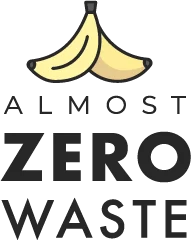5 Eco-Friendly Alternatives To Ziploc Bags
This post and the photos within it may contain affiliate links. If you purchase something through the link, I may receive a commission at no extra charge to you.
Most of us use Ziploc bags once and then throw them away. The problem? They create a lot of plastic waste that takes hundreds of years to break down.
If you’re for alternatives to Ziploc bags that are plastic-free and eco-friendly, the good news is, there are plenty of practical, sustainable options!
Below, you will find a list of eco-friendly Ziploc bags that help you cut down on single-use plastic bags.
Let’s dive in.
1. Reusable silicone bags
If you’re after the real Ziploc bag alternative, reusable silicone bags are your best bet! Even though silicone can be a tricky material, it is still a good choice and better for long-term use. They’re made from food-safe silicone that’s durable and easy to use. Brands to check out include Stasher & Homelux Theory.
It’s an ideal swap for you if you’re looking for:
- Airtight, leak-proof, and something that can handle hot and cold temperatures.
- You can use them in the microwave, freezer, and dishwasher.
- Comes in different sizes.
Good to know:
- Cleaning can be tricky because of the narrow opening, so hand wash and air dry by placing the bag open on a cup.
- They cost more than plastic bags but last for years if you take care of them.

2. Eco-friendly snack bags
Reusable snack bags are great for sandwiches, fruits, nuts, and other snacks. Brands to check out: Tiny Twinkle, Nordic by Nature
- Many are made from recycled plastic bottles or organic cotton.
- They usually have a water-resistant lining.
- They’re washable but can take a while to dry.
3. Glass or stainless steel lunch box
Stainless steel or glass containers are a great option because they’re sturdy and built to last. Unlike plastic, they won’t crack, stain, or retain odors, making them perfect for packing meals. Plus, they’re leak-proof and safe for dishwasher and freezer use.
- They’re leak-proof, dishwasher and freezer-safe.
- Great for meals on the go.
- Heavier and more expensive than bags, but built to last.
4. Jars
Reusing jars is a simple and cost-effective way to store food or freeze leftovers.
- They’re affordable, freezer and dishwasher-safe.
- Made of non-toxic materials.
- Breakable and not great for carrying around.
5. Reusable food wax wraps
Wax wraps are cotton sheets coated with beeswax or plant-based wax. You can use them to wrap food or cover bowls. You can check out Bee’s Wrap.
- They keep food fresh and are compostable.
- Don’t use them for hot foods or in the microwave.
- Clean with cold water and mild soap, then air dry.
- They’re a bit pricey but last a long time.

Quick FAQ
Are silicone bags hard to clean?
A bit, but hand washing and drying upside down on a cup helps.
Can Ziploc bags be reused?
Sure! If you already have them, reuse as much as you can before recycling.
Are Ziploc bags biodegradable?
Nope. They break down into microplastics that linger forever.
What is the best alternative to Ziploc bags for freezing food?
Silicone bags are perfect for freezing food.
Final thoughts
Finding a good plastic-free alternative to Ziploc bags is easier than ever. Whether you prefer the flexibility of silicone, the simplicity of glass jars, or the convenience of snack bags, there’s an option for everyone.
The most important thing is to pick what fits your lifestyle and to start small. Even swapping just one product can make a meaningful difference.
Have you tried any of these alternatives? I’d love to hear what works for you.







I completely agree that Reusable Plastics are preferred over single use – But I guess I don’t (personally) find these a good option because the process of making them is still toxic….and don’t they still release microplastics into the water when washed? And still bad for our health when our food comes in contact? With so much bad information it’s hard to discern. And last, like everything else, reusable plastic will be discarded at some point and once it is, its still poses the same toxic risks as single use. Again, better than single use and I get that there is no perfect answer to eco friendly solutions… Thanks for the article